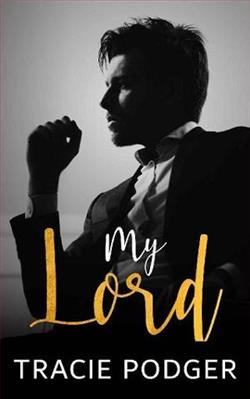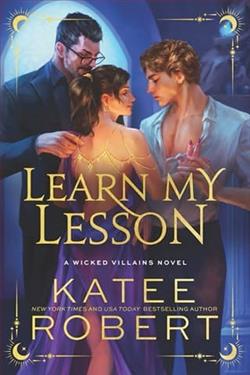Page 55 of Badlands
“This thing runs very deep,” Nora said. “And I don’t have a lot of the answers. But yes—the signs point to our dealing with human sacrifice. Today.”
“A cult,” said Corrie, a note of satisfaction in her voice.
“Yes,” said Nora after a moment. “Yes.”
30
AFTER ANOTHER PROTRACTEDsilence, Corrie said, “I think I’m going to need a little fortification myself.”
Watts poured her a drink and then waggled the snout of the bottle at Nora.
“No thanks. I have to drive.”
“It’s getting late—you shouldn’t be driving back through the mountains in the dark. You need to stay here, if you don’t mind the sofa. I’ve got a sleeping bag you can use.”
Nora was grateful for the offer. “In that case,” she said, “pour me one of those, too. We still have a lot to talk about.”
He handed her a drink. She took it and sipped, the fiery liquid going down nicely. “To sum it up: Driver believed there were a total of seven lighthouses, built by the Chacoans as an early warning of any dark doings by the Gallina.”
Corrie nodded. “And you’re wondering—do theyallhave bodies at their bases?”
“Exactly,” said Nora.
Watts lit a couple of kerosene lanterns as the evening dusk settled in.
“Okay,” said Corrie slowly. “I think the FBI should investigate these five unexplored sites for human remains.” She gestured at the documents and maps on the table. “Can I take this stuff?”
“It’s all for you—and I’ll AirDrop the photos to your phone.”
Corrie shook her head. “I’m still trying to wrap my head around this. Human sacrifice—here and now? Willing sacrifices, at that. What could possibly have precipitated it?”
Watts spoke up. “Oskarbi.”
Nora looked at him. “Exactly. Somehow, Oskarbi must be at the center of this. He gathered all these acolytes around him. He was sleeping with the women. He wrote a book that made his name—and that just happened to be about taking hallucinogenic drugs. He led field excavations into the Gallina Canyon every summer. And for some reason, he suppressed this crucial conclusion to Driver’s dissertation. He didn’t want anyone to know this stuff.”
“Hold on,” said Watts. “As I understand it, Oskarbi disappeared like a dozen years ago—long before these women died.”
“They say he went back to Mexico to continue his studies,” said Nora. “But I’ll bet he’s stayed in touch.” She turned to Corrie. “The FBI need to go down to Sierra Madre, find him, and bring him back for questioning.”
Corrie didn’t respond for a moment. Then she said, “That’s a problem.”
“How so?”
“You know how hard it is for the FBI to get authorization to send agents into a foreign country? Especially Mexico? It’s a bureaucratic nightmare, it would take months, and in the end it probably won’t work. And the truth is, we don’t have any solid evidence against Oskarbi, let alone a smoking gun. It’s just supposition.”
“Then I’ll go.”
“Into Mexico? Are you nuts?”
“I’ll go as a tourist. A lot of people travel to the Sierra Madre to see Copper Canyon and the Tarahumara Indians. I’ll go as a tourist, arrange to run into Oskarbi, and then we’ll have a nice chat.”
“And just how do you plan to find him?”
“I’ve traveled all over Mexico—and I speak enough Spanish to get along. From his book, we know at least approximately where he was with the Totonteac Indians.”
“That sounds dangerous as hell,” Watts said. “In those backwaters of Mexico, with all the drug smuggling and cartels. And on top of that, if Oskarbi is somehow involved in these deaths—voluntary or not—he isn’t a safe person to confront.”
“I’ll be fine,” Nora said.















